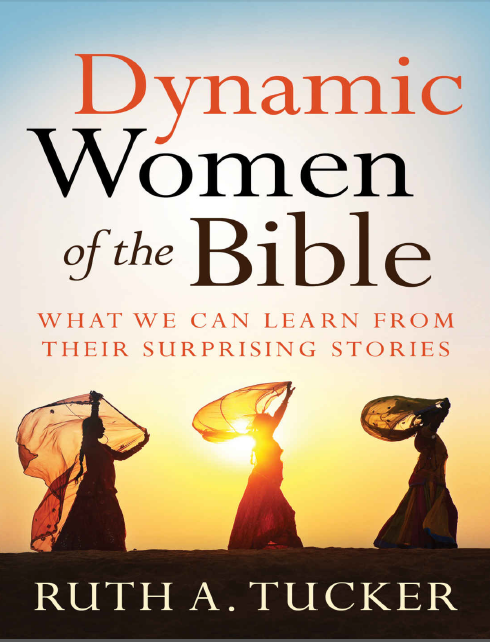Christian Literature
Dynamic Women of the Bible
What We Can Learn from their Surprising Stories
- Category: Christian Literature
- Author: Ruth A. Tucker
- Pages: 324
- Price: 0
- Library: Christian Library Nation
- File: Dynamic Women of the Bible What We Can Learn from Their Surprising Stories (Tucker, Ruth A) (z-lib.org).pdf
Hits: 272
Review
Introduction
What if there had been no story?
No Abraham and Sarah, no Isaac and Rebekah,
and no Esau and Jacob, and no Rachel and Leah.
What if no one had remembered?
What if no one had cared enough to write it down?
What if there had been no God of Adam and Eve, Cain and Abel,
and the ten generations from Noah to Abraham had never existed?
What if there had been no creation and there was only chaos and the void?
What if God himself was only a hole in the darkness?
Anne Roiphe, Water from the Well
What if, indeed, there had been no story—no Bible that has brought
balance and richness and spiritual direction to countless faithful through the
ages? And where else in history or literature could we find such an
assortment of colorful women as in the Bible? And where could we find
women whose issues and aspirations are as contemporary as our own? From
Eve to Phoebe and Priscilla, these women seek to understand and serve God
and to deal with sin and personal struggles in their lives. It’s all in the Bible,
whether anger, infertility, rape, incest, adultery, mental illness, marital
problems, racism, sister rivalry—even idolatry and murder. Almost any
problem we can imagine is found among these women in the pages of
Scripture. But we also find joyful celebrations and ingenuity and quick wit
and cooperation and courage and sacrificial ministry.
Some of these fascinating women in both the Old and the New
Testaments are not even named. We know them only by a description or a
feminine pronoun. She is buried in the book of Judges, this unnamed
daughter of a man whose name is either mispronounced or misspelled or
entirely forgotten. Her story is shocking. She is her daddy’s little girl—
absolutely adored. Then in an insane set of circumstances her world is
upended. Is she slain as a ritual sacrifice by her doting father, or is she
forced into a lifetime of secluded celibacy? The text is unclear. Jephthah’s
daughter, forever nameless, is just one of the captivating women in the
Bible.
How we might wish the Bible came with footnotes expanding the stories
and points of view of these female characters. But even the women who
have become household names are barely known to us. That the Bible
offers few biographical details, however, is not necessarily an obstacle to
the one who wishes to draw inspiration and understanding from its pages. In
fact, one might argue that the power of the text is often bolstered by its very
brevity. The purpose of the writers, rather than to simply present biography,
is to relate events or perhaps put forward beliefs and laws of behavior and
worship. So we’re frustrated when we discover their profiles are so puny.
When I was growing up, we took the Bible seriously, and so it ought to
be. But there is also a place for fun and even hilarity. If we don’t laugh with
the writers of the Bible, we will surely cry because almost every book is
soaked in blood and sadness. In fact, we join with generations of old who
see right through the desolation into the very heart of humor. We imagine
the patriarchs and their descendants sitting around campfires telling and
retelling these same stories, sometimes slapping their knees and howling
with laughter. So also women baking bread and drawing water reminding
each other of Rebekah and Rachel and Rahab. What merriment these
recollections would bring.
Women comprise a distinct minority—often a marginalized minority—in
the biblical text. Of the some three thousand named Bible characters, fewer
than 10 percent are women. But positioned as other, they play a key role.
They are the ones who bring new blood into the family of God. Israelite
men marry them. Such stalwarts as Esau, Judah, Moses, Boaz, and King
David marry outsiders. The prophet Hosea marries a prostitute. Jesus
interacted with a Samaritan as well as a Syrophoenician woman. And of
course Jesus himself had outsider blood running through his veins. This
only serves to make the women of the Bible approachable and authentic.
In addition to the down-to-earth reality of these women, their symbolic
wallop is enormous. Eve is a case in point, as is Mary. Perhaps more than
any other biblical characters, they are suffused with symbolism, particularly
through the course of church history. But they are surely not alone. Sarah
and Hagar and Lot’s wife are cited metaphorically by none other than Paul
—and Jesus himself

